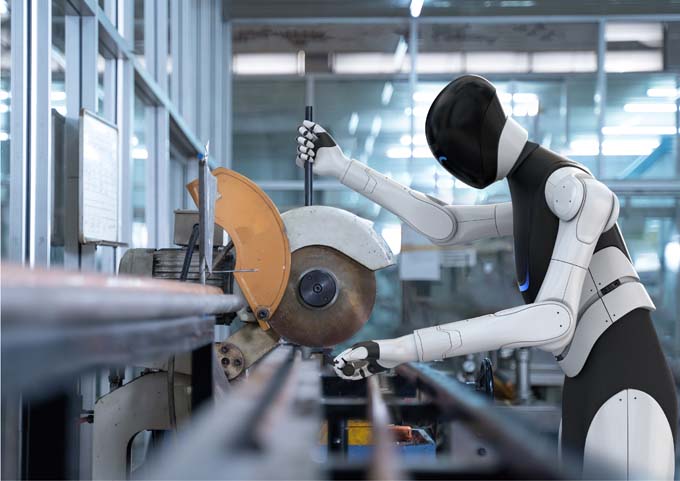Turning pressure into traction
Supervisors can make the cooperation with their employees more uncomplicated and efficient - if they consider that feelings also play a role in the workplace.

"The development of social behaviour is a cause for concern. Interpersonal frictions out of the shooting up feeling of the moment are the order of the day. People react impulsively, quickly aggressively and vindictively, even in the case of trivialities, they regard supposedly inappropriate facial expressions or gestures as insults, they assume, presume, interpret, deal in blame, they arrogate to themselves sovereignty of opinion", describes the Viennese psychotherapist Professor Dr. Alfred Kirchmayr what is increasingly being observed.
Symptoms and their causes
Even corporate consultants familiar with the background and background currents in companies are noticing what Kirchmayr is worried about. The cooperation expert and managing director of the Munich-based Coverdale Unternehmensberatung Thomas Wee-gen mentions noticeable effects and consequences of this in the companies: "Bad-mouthing, badmouthing, uncollegial, unruly or company-damaging employee behavior, internal dismissal, mobbing, intrigue and all kinds of obstructionism can always somehow be traced back to the effects of behavioral perceptions. Consistent experience is that thoughts of revenge and paying home always play a role in management and team problems as a response to behaviour that is perceived as hurtful.
"Do not cause sensitivity reactions".
"If leadership, as a goal-oriented social interaction, must be guiding and demanding, it should also be careful not to trigger any sensitivity reactions at the same time. If there is a lack of sensitivity and tactlessness, leaders trigger defensive reactions that can have a very negative impact in various ways," says Professor Erich Kirchler, Director of the Institute for Applied Psychology at the University of Vienna. He refers to the Pareto principle. According to this principle, 20 percent of the effort achieves 80 percent of the result. The same applies to leadership. If this ratio is to be achieved in cooperation, then behavioral skill is required. "All relevant research results show that the willingness of a workforce to cooperate is controlled by the acceptance of superiors. And that means that the most effective motivation is a sense of tact on the part of management, the most reliable demotivation is its absence.
Lack of tact
Weegen finds clear words in this regard: "If executives can do something fundamentally wrong in the management of the transformation process, which is already delicate in itself because it triggers uncertainty, it is to focus only on their targets and lose sight of the people with whom they must cooperate to achieve these goals. Most conspicuously, he says, this defective vision shows up in behavioral appearances. The tone of voice plays a very unpleasant role. It is precisely the tone of voice that causes pleasure or displeasure to a degree that is enormously underestimated. "In the current situation of technological upheaval, nerves of steel are at a premium.
"The most effective motivation is fingertip feeling in leadership."
of everyone is tense anyway. Comfort zones that have become dear to us have to be left behind, we have to let go of what we are used to, we have to get involved in what is usually a revolutionary new situation, and we have to come to terms with it. It is not at all conducive to this enormous need to push employees over the edge in a brutal way.
Kirchmayr explains why this has such a fatal effect: "Frustrations evoked by careless or completely inappropriate tonality trigger an inner agitation and alertness that is difficult to subside. He who is agitated within is not in his thoughts, is distracted, unfocused, preoccupied with his feelings, and correspondingly inaccessible and unwilling." Inner excitement, especially persistent excitement, blocks not only the desire to participate and think, but also the open-mindedness and readiness to accept new things. If a person is rumbling, he or she is preoccupied with him- or herself and, in the truest sense of the word, simply closed. "Whether in private or professional relationships, whoever does not really become aware of these interrelationships for themselves and their effects on others, is unwaveringly conjuring up new disharmonies. And with it a permanent excitement that seeks its outlet. Be it the desire to pay something back, be it a steadily more hardening attitude of defense and denial."
Blockades and brake blocks
Basically, people are hyper-sensitive and also lack drive when they are permanently excited. Unruliness, a lack of will and ability block their drive and unreserved willingness to deal with the demands of the day and the times. "This acts as a brake on the management of the upcoming digital changes with their profound organizational and personal effects," says Weegen. If the overall situation already exerts enormous pressure on all those involved, this pressure is increased even more by emotionality that is triggered thoughtlessly. If, on the other hand, the supervisors were able to take the pressure out of the situation by means of their considered leadership behavior, this would relieve the pressure on everyone and at the same time make them more active. "Basically, it's a matter of turning pressure into traction, of pulling the team members along by creating a bond.
Man and his design task
To be aware of the effect of one's own behaviour and to act accordingly, that, says therapist Kirchmayr, "is probably the most powerful formative force in life that is open to personal access". Whether in a relationship, family, friendship, or a job, wherever a person meets people, has to interact with people, and has to achieve something in cooperation, the person is faced with a task of shaping. To keep this in mind and to act accordingly, "this may not be easy in every situation, sometimes it may even appeal to self-conquest and run counter to what is emotionally considered appropriate, but in most cases, in retrospect, it proves to be a blessing and the key to success. For health, too, by the way."









